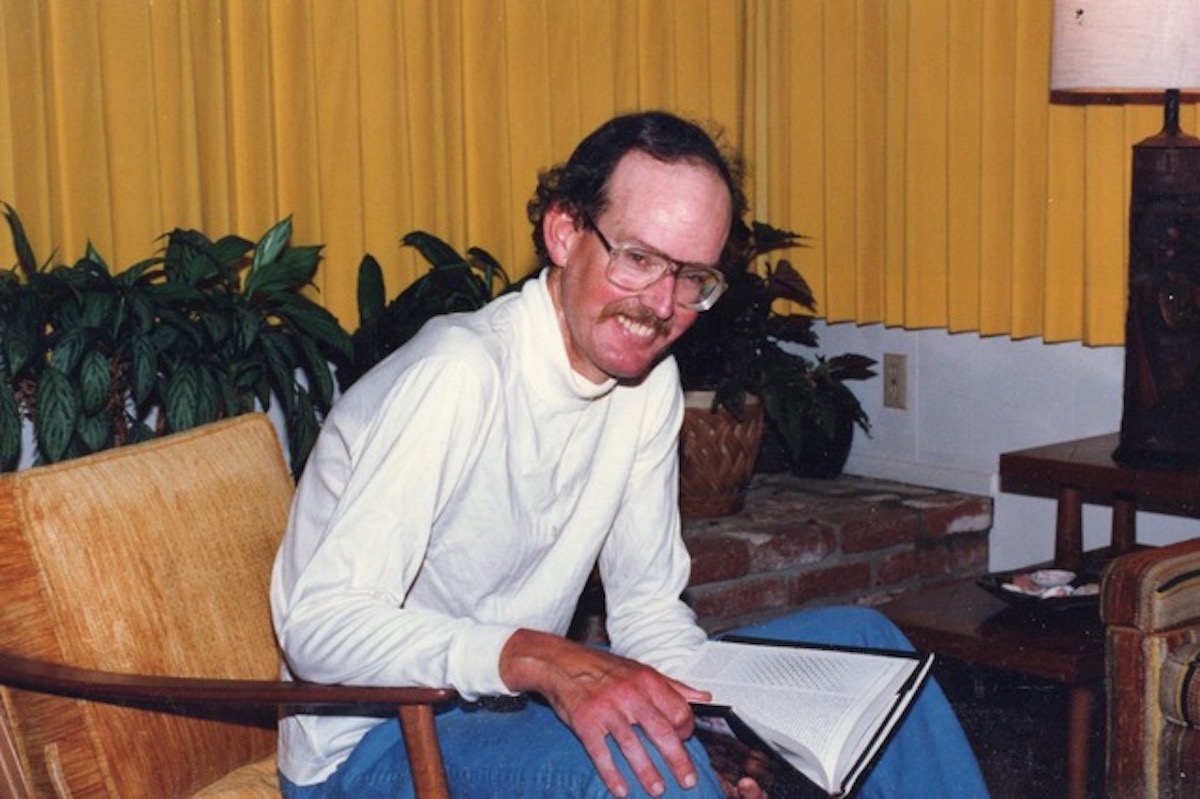
While some may be content with encountering life as a passive exercise and with unexamined acceptance, such a description would not apply to Fred Hofmann, who spent his adult life pursuing the deeper truths about the world of American politics. For Fred, conventional wisdom was an invitation to dig a little deeper.
Born in Monterey County, raised in Santa Barbara, and a San Marcos High School alum and UCSB grad with B.A. and M.A. degrees in political science, Fred Hofmann died in early November of cardiac failure.
Fred Hofmann chose to live his life simply and selflessly. For more than 50 years, he bicycled from his sparsely furnished Isla Vista apartment to teach classes: first to SBCC as a political science adjunct professor, and, over time, as a current events discussion leader at outreach sites through the college’s School of Extended Learning. Fred’s low carbon footprint fit snugly into his uncluttered lifestyle.
As a teacher, Fred was a self-described “contrarian” who often took the least popular side of an issue. His goal: for students to reexamine and reconsider their views, especially those positions they took for granted — to “get out of their comfort zone,” as he put it. Civil discourse was a priority. Getting students to appreciate a diversity of viewpoints was an essential task. To many, his courses were, in effect, a training or reaffirming ground in critical thinking, a kind of baptism into the world of politics seen through the mind of a quality observer.
Watching Fred in his classroom was always a study in motion. He would pace across the front of the room from one side to the other, taking care to bring the students with him. His head would be cranked and slightly lowered in their direction. When he would turn to pace in the opposite direction, his head would once again switch so that he never lost eye contact.
His lectures would never consist of a simple recitation of facts. He would preface any conclusion with a set of questions, designed to provoke active student inquiry. He would ask “why” this or that might be the case, inviting the student to provide a response, all designed to prompt active engagement. Fred would wait for their responses and urge others to critique what they heard. It was almost as if he was waiting for his students to be fully engaged — even frustrated by the absence of a conclusion to the inquiry — before he would share his observations.
Fred was convinced that students needed to understand the fundamentals of American politics, but he was even more convinced that they needed to understand the value of critical thinking and that the nature of inquiry is not a passive exercise. He wanted to infuse the student with the idea that learning was both necessary and exciting, and ultimately that this process requires serious effort.
In recent years, Fred created original movie classes out of his enthusiasm for and detailed knowledge of “film noir” and other vintage works. During the COVID closures, he put these Extended Learning classes online for his devoted film attendees.
For nearly three decades, Fred was also a regular contributor to the op-ed pages of local newspapers, penning insightful and well-written essays on an array of topics, including immigration in America, global warming, political election cycles, reinventing history, presidential spoilers, American baseball, and much, much more.
As a person, Fred Hofmann was a uniter: bringing people together, urging them to connect with their past, reminding them that they aren’t alone, gently nudging them out of their self-isolation and sometimes even loneliness.
Each Valentine’s Day, Fred’s many female friends, young and old, received cards from “a secret admirer” whose handwriting was unmistakably Fred’s. Recently, he funded and presided over a “Bingo Bash” in memory of his late mother at the Friendship Manor retirement home in Isla Vista — an annual gala event replete with a large birthday carrot cake and cash awards.
Working with the Historical Society in Madrid, Iowa, Fred was instrumental in funding a memorial kiosk and museum displays honoring the immigrant miner families of nearby Boxtown, part of Madrid’s coal producing history. Boxtown had been the childhood home of his Italian mother, Josephine Pagliai Hofmann. Recollections of her early years were published in the local paper.
Fred was also a founding member of the SBCC Legacy Project aimed at preserving SBCC’s history through “first-person narratives.” In recent years, he arranged and helped underwrite events at the college honoring founding business and accounting professors John O’Dea and Merle Taylor and political science professor Dr. Robert Casier.
Master of the small gift (those Valentines, lottery scratchers, mugs emblazoned with the name of your hometown), Fred reveled in sports, film, and comic book trivia. Who threw the ball when Willie Mays hit his first home run? Fred knew. What distinguished the Disney characters Pluto and Goofy? Fred could tell. How many readers can recall the origins of the name “Notary Sojac”? Fred could. What was Flash Gordon’s real name? Ask Fred.
So much was done by such an unassuming person in a cut-short lifetime. Quietly and consistently, Fred Hofmann made our community a better place for having participated in it. He will be missed. A celebration of life will be held at a future date.
